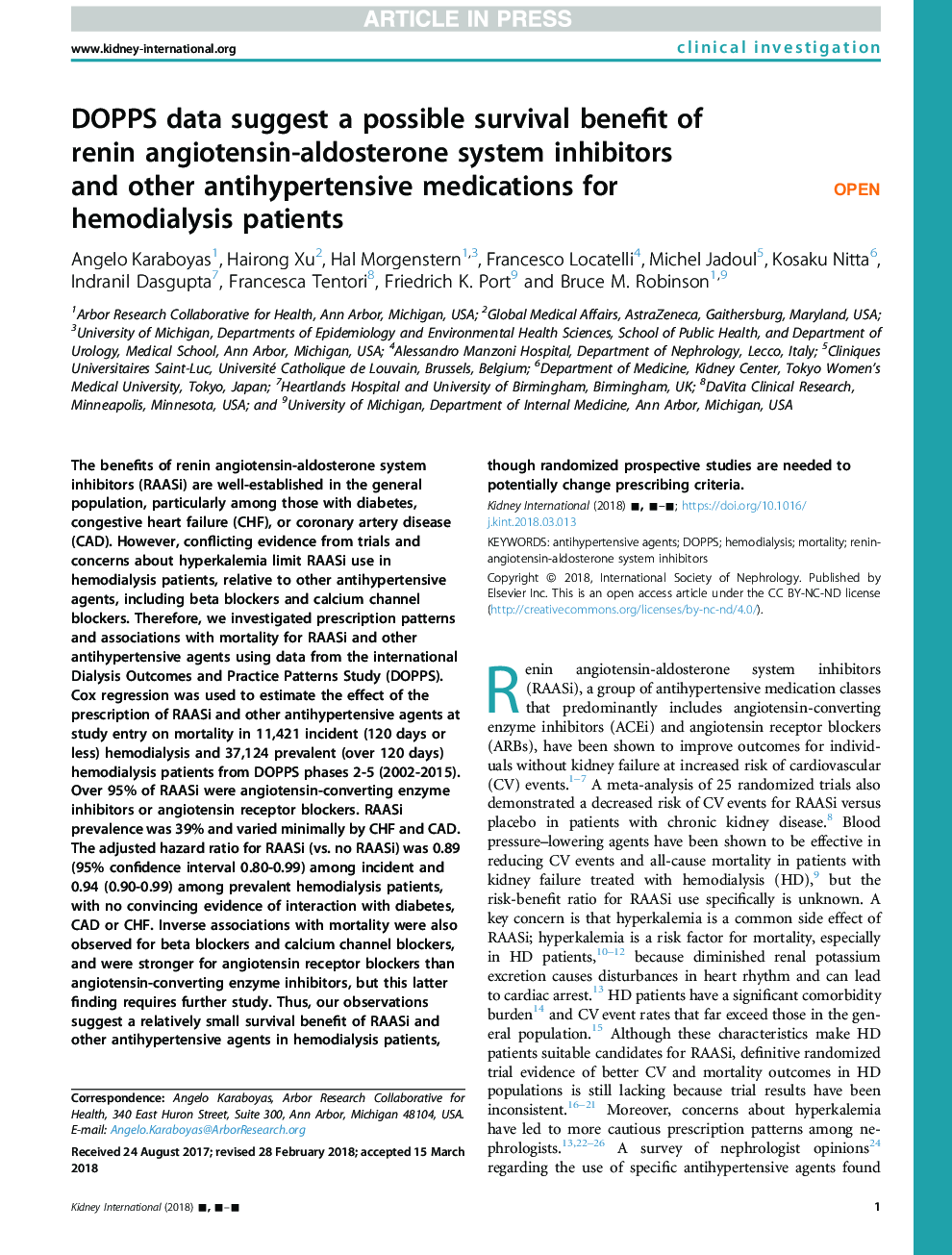| Article ID | Journal | Published Year | Pages | File Type |
|---|---|---|---|---|
| 8952371 | Kidney International | 2018 | 10 Pages |
Abstract
The benefits of renin angiotensin-aldosterone system inhibitors (RAASi) are well-established in the general population, particularly among those with diabetes, congestive heart failure (CHF), or coronary artery disease (CAD). However, conflicting evidence from trials and concerns about hyperkalemia limit RAASi use in hemodialysis patients, relative to other antihypertensive agents, including beta blockers and calcium channel blockers. Therefore, we investigated prescription patterns and associations with mortality for RAASi and other antihypertensive agents using data from the international Dialysis Outcomes and Practice Patterns Study (DOPPS). Cox regression was used to estimate the effect of the prescription of RAASi and other antihypertensive agents at study entry on mortality in 11,421 incident (120 days or less) hemodialysis and 37,124 prevalent (over 120 days) hemodialysis patients from DOPPS phases 2-5 (2002-2015). Over 95% of RAASi were angiotensin-converting enzyme inhibitors or angiotensin receptor blockers. RAASi prevalence was 39% and varied minimally by CHF and CAD. The adjusted hazard ratio for RAASi (vs. no RAASi) was 0.89 (95% confidence interval 0.80-0.99) among incident and 0.94 (0.90-0.99) among prevalent hemodialysis patients, with no convincing evidence of interaction with diabetes, CAD or CHF. Inverse associations with mortality were also observed for beta blockers and calcium channel blockers, and were stronger for angiotensin receptor blockers than angiotensin-converting enzyme inhibitors, but this latter finding requires further study. Thus, our observations suggest a relatively small survival benefit of RAASi and other antihypertensive agents in hemodialysis patients, though randomized prospective studies are needed to potentially change prescribing criteria.
Related Topics
Health Sciences
Medicine and Dentistry
Nephrology
Authors
Angelo Karaboyas, Hairong Xu, Hal Morgenstern, Francesco Locatelli, Michel Jadoul, Kosaku Nitta, Indranil Dasgupta, Francesca Tentori, Friedrich K. Port, Bruce M. Robinson,
